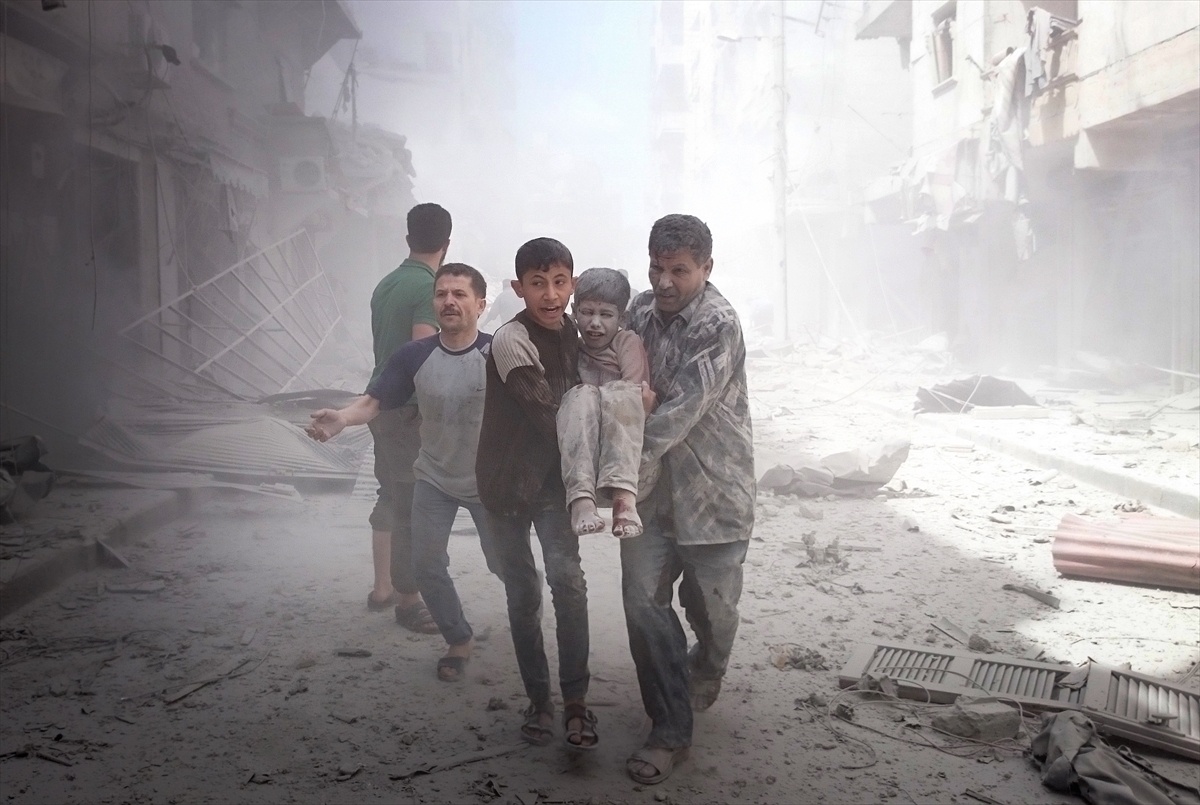
 Syria War: What started it?
Syria War: What started it?
Friday 16th March 2018 | Jake
The civil war in Syria will enter its seventh year in 2018, an estimated 400,000 people have lost their lives in the conflict, the UN reported in late February, while well over 5 million Syrians have fled the country.
So how did a non-violent pro-democracy rally in early 2011 develop into a brutal civil war that has sucked in its neighbours and the west?
By now we’re all familiar with the war currently raging in Syria, it’s been in the headlines week in week out since violence broke out in 2011. However, if you ask anybody on the high street how the war erupted it’s unlikely you’ll get a confident reply. A short summary of the roots of this civil war, which has drawn in almost all of its neighbours alongside a number of western powers, could be interpreted as slightly reductive, considering the sheer weight of factors leading to the situation as it is today: as much a proxy war as a civil one.
Nonetheless, considering the war for what it started as, a civil war between the government and numerous rebel forces, a clean, condensed history of the birth of this war is capable.
Like father, like son

Firstly, the key figure in the war is Syrian president Bashar al-Assad, leader since the death of his father, Hafez al-Assad, in 2000. Hafez ruled Syria as an authoritarian president for almost 30 years, coming into power in 1971 and staying there until his death in 2000. Hafez was a belligerent dictator, he imprisoned anyone who opposed him and dealt with public unrest in a violent fashion.
Following the death of his father, Bashar, who was not initially interested in the presidency, adopted the autocratic approach of his dad. It was this harsh treatment of his people that led to pro-democracy rallies across the country in early 2011.
2011 – a year of change

These protests intensified when Bashar’s armed forces opened fire on unarmed dissidents, leading to several fatalities. Unrest simmered and erupted into mass-demonstrations in the summer of 2011, with demonstrators beginning to arm themselves, anticipating another violent response from Bashar.
Government forces did attempt to quash the rebellion, however, they were met with fierce resistance and the demonstrators were soon in a position to drive Bashar’s forces out of settlements and districts.
Aware of the possibility to topple a weak, deeply unpopular regime, the anti-Assad rebels (no longer necessarily pro-democracy) moved to secure government controlled land, including towns and cities. Civil war had broke out, and by 2012 the war had reached the capital Damascus. A series of protests that had begun in the south had developed into all-out war within a year.
A knotted conflict

A key reason for the mass confusion gripping the public towards the conflict is that it very quickly morphed into a war containing many armies with very different aims.
Tragically, as with many uprisings in the Arab spring, although the protest had the numbers, they lacked a clear, shared vision beyond wresting power from the incumbent regime. The Syrian pro-democracy movement soon split up into multiple factions following the outbreak of civil war, according to the BBC there were over 1000 armed opposition forces by 2013. The largest of which, the Free Syrian Army (FSA), was founded by former armed forces personnel.
A sectarian war

Despite its roots in striving for democracy, once the rebellion splintered into different directions furthering a religious belief became the prominent goal of a number of factions, most notably the jihadist Islamic State (ISIL).
Alongside a yearning for democratic freedoms, the early protestors were disillusioned with a government that didn’t represent their beliefs. Bashar belongs to the Shia Alawite chapter of Islam, making him a minority in the majority Sunni Syria.
Faith has since played a major role in the conflict, with many sides forming alliances over their shared beliefs.
With the benefit of hindsight, it is clear that the perfect storm was brewing before civil war eventually broke out, fast forward seven years and Syria is as divided and entangled in a web of conflicts as it ever has been.
